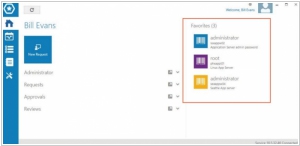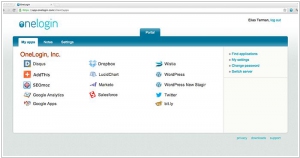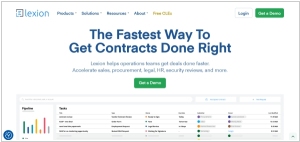One Identity vs OneLogin
August 06, 2023 | Author: Michael Stromann
One Identity and OneLogin are both well-known players in the identity and access management (IAM) market, but they have different approaches and target audiences. One Identity focuses on providing comprehensive IAM solutions, including identity governance, access management, and privileged access management (PAM), catering to enterprises seeking centralized control over user identities and access permissions across diverse systems and applications. Their platform is ideal for organizations with complex IAM needs, especially those with hybrid IT environments. On the other hand, OneLogin is a cloud-based IAM solution specializing in single sign-on (SSO), multi-factor authentication (MFA), and identity management for cloud applications. It is particularly favored by businesses that heavily rely on cloud-based tools and need a user-friendly IAM solution to enhance security and streamline access to various cloud services.
See also: Top 10 Identity Management platforms
See also: Top 10 Identity Management platforms
One Identity vs OneLogin in our news:
2021. One Identity has acquired OneLogin, a rival to Okta and Ping Identity
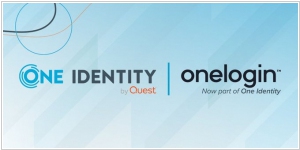
More consolidation is underway in the realm of cybersecurity, particularly concerning services that assist organizations in identity and access management. Today, One Identity, a provider of tools for managing "zero trust" access, log management, and governance services for enterprises, revealed its acquisition of OneLogin. OneLogin, a competitor to companies such as Okta and Ping in the secure sign-on services domain for end users, boasts an impressive customer base of around 5,500 organizations, including renowned names like Airbus, Stitch Fix, AAA, and Pandora.
2017. OneLogin brings some smarts to multi-factor authentication
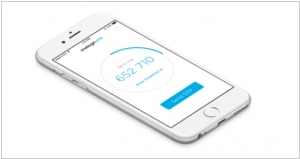
Multi-factor authentication service OneLogin has introduced an updated version of its mobile app that incorporates machine learning capabilities. This new release utilizes machine learning to analyze and recognize your typical usage patterns. As a result, the app will only prompt you for a second factor of authentication when it determines it to be absolutely necessary. Unlike most multi-factor authentication algorithms, which follow rigid rules such as requesting a password when on the work network and a second factor when not, this enhanced version takes a more nuanced approach by understanding how users typically access the network. The latest iteration of the OneLogin OTP aims to address this issue. For instance, if you frequently log in from your home using the same laptop, after multiple instances, the system will learn that this location and device are familiar to you. Consequently, you will be granted access to the network without the need for a second factor of authentication.
2016. OneLogin acquires Sphere Secure Workspace to gain mobile management
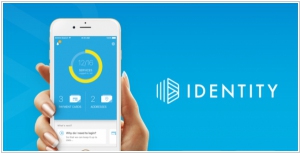
Cloud identity management provider OneLogin has completed the acquisition of Sphere Secure Workspace, expanding its identity-driven security model to include mobile device management capabilities. Sphere offers a containerized approach to mobile security, where work-related content is segregated from personal content within a virtual container on a single device. Although this approach is not novel, it provides OneLogin with entry into the lightweight mobile device management sector. With Sphere, the company can easily eliminate the container when an employee departs from the organization or misplaces a device, while preserving the individual's other content. This solution enables employees to access work-related content in a highly secure manner through a single login, while safeguarding their personal content.
2011. VMWare launches single sign-on service
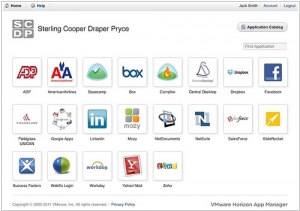
As known, the main problems with SaaS-apps arise not with users, but with IT administrators, because they are losing control over what's happening. Because of this, they resist the SaaS implementation, claiming in particular, that they can't control authentication data across multiple SaaS services. To solve this problems, the new class of services appeared - SSO (Single Sign-on services). We have already reviewed one of them - OneLogin. There are some others, but all of them are semi-startups, which can't fully satisfy the IT staff. And finally there is a solution from the solid company - VMware Horizon App Manager. ***
2010. OneLogin - Single sign-on for SaaS apps
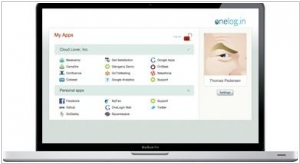
Thanks to SaaS technology, a large number of business applications have appeared. Now companies can use multiple applications from different vendors (not just from Microsoft). But along with the wide variety of applications the problems of their integration and a single sign-on have come. Various platforms, marketplaces and SaaS associations are intended to solve these problems: Force.com, Intuit Partner Program, Google Apps Marketplace. OneLogin also tries to solve the single sign-on problem in simple and ingenious way. It is the centrally-administered username / password database + browser plugin, which makes working with a large number of SaaS applications very convenient. ***

